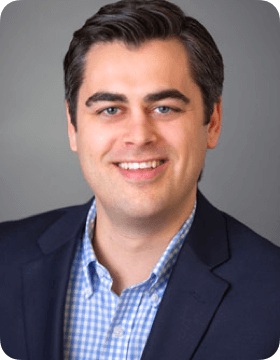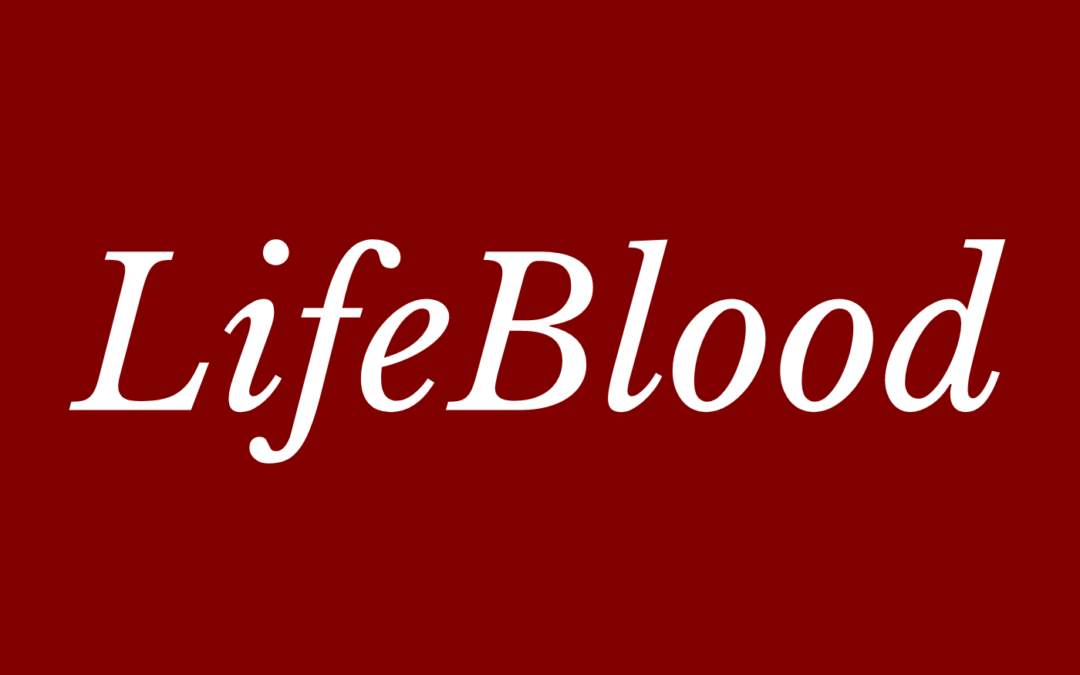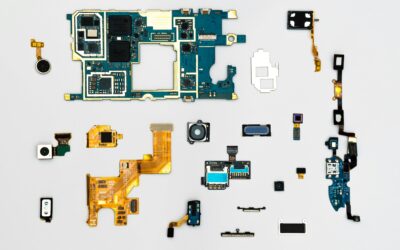Values Based Investing with Zach Conway
How aligned are your values and your investment portfolio? Zach Conway shares his perspective on why that’s important and the platform he’s built to make it happen!
Listen to us On
About the Episode
LifeBlood: We talked about values based investing, how many people would like to have their investments portfolios aligned with their personal values but don’t know how to make it happen, and how it’s no longer necessary to separate doing good and making money with Zach Conway, Founder and CEO of Seeds, Managing Director of Conway Wealth, and CoFounder of Life and Wealth Network.
Listen to learn how aligning your personal values with your investment strategy is more possible than most people realize!
You can learn more about Zach at SeedsInvestor.com, Twitter and LinkedIn.
Thanks, as always for listening! If you got some value and enjoyed the show, please leave us a review wherever you listen and subscribe as well.
You can learn more about us at MoneyAlignmentAcademy.com, Twitter, LinkedIn, Instagram, Pinterest, YouTube and Facebook or you’d like to be a guest on the show, contact George at Contact@GeorgeGrombacher.com.

George Grombacher
Lifeblood Host

Zach Conway
Guest
Episode Transcript
Come on.
Welcome to life blood. This is George G. And the time is right welcome today’s guest strong and powerful Zack Conway. Zack, are you ready to do this? I’m ready. Thanks for having me. excited to have you on. Zack is the founder and CEO of seeds. He’s the managing director of Conway wealth. And he is the co founder of life and wealth network, get excited to have you on Zack, tell us a little about your personal life. It’s more about your work and why you do what you do.
Zach Conway 0:40
Yeah, thank you. So on the personal side, I am a husband, and I’m a dad of two young daughters of almost four year old and a one year old. So that kind of sums it up. They keep me very busy, including this morning, on the on the professional side. So like you, George, I’m a financial advisor by background. And in terms of, you know, thinking about why I do what I do, it’s a pretty amazing experience to sort of be able to sit in the middle of a family’s life, and really be seen by that family as the person that can support everything going on in their world. So certainly, on the financial side, you know, we’re looking to try and to secure, you know, long term financial security, obviously, for the family, and all that traditional planning work of, you know, what is cash flow look like? And what does your portfolio look like? And do you have the right insurance coverages and things like that, of course, that’s, that’s important. But what’s exciting about the work is really all the things sort of beyond the numbers, right? So, you know, we think about all these other areas of life that are really most important to the family, their health, you know, the quality of their relationships, we think about, you know, you may be making a lot of money in the work that you do, and that’s great from a long term financial security perspective. But do you actually like the work you do, right, because if you get burned out in two years, and you know, aren’t fulfilled, that’s pretty critical to understand, and we want to support that. And so, you know, those those areas of life becoming sort of part of the plan, and it’s so fulfilling as an advisor to be part of that. And one of the things, you know, that becomes part of the conversation through through all of those dialogues, is, what is the family’s kind of core fundamental values, right? How do they sort of see the world? And as an advisor, it’s always been important from our perspective, to try to bring that to life, you know, in whatever way we can. And I would say, you know, in our business that was manifested most by way of sort of legacy creation, what are you doing from a nonprofit giving perspective, to sort of perpetuate, you know, how you view the world, and you know, what legacy you want to create. And we realized that as we were delivering that solution, and being at the heart of those dialogues, we were delivering long term investment portfolios, that were arguably antithetical to that. So we saw our value as being, again, understanding values, and then manifesting that in some aspects of the planning. But then these families were sort of unwittingly, empowering companies that, again, were sort of negating in some way, what they were doing over here. So as much as we love being at the heart of those conversations is sort of gut check that we were not doing things perfectly. And as a result of that, we’ve launched an entirely new business, a FinTech platform, called seeds to really try to solve that problem, and bring sort of alignment, you know, from a values perspective for us, and
george grombacher 3:56
I love it. It’s one thing to, to be thoughtful enough to, to recognize, Hey, you know what we’re doing, it’s sort of contrary to what we’re interested in doing. And that’s certainly being mindful enough and thoughtful enough to be able to do that, but then to actually put resources toward it put money toward to put time and attention toward it, and then to go back to clients and say, Hey, we’re doing this, but we think that this is going to be better. That’s certainly a that is a story of commitment right there.
Zach Conway 4:29
Yeah, yeah, I appreciate it. It is, you know, always in business and and in life, sort of continually trying to do that gut check of if we have this Northstar, you know, and what we’re trying to do for a family and do for ourselves, what’s kind of blocking us on the way and this was certainly kind of a critical point. And, you know, it wasn’t just about ourselves and our own business, we sort of then realize what the macro problem was right? And that sort of the conventional wisdom Of what investing is, as a process was always sort of agnostic of values, right? It’s always been, you do that you solve that as a family by way of your charity. Right. But by giving your dollars away after you make them, and there’s sort of this inherent irony in, you know, the, the money you’ve made to get there has maybe been again, negating those things along the way. So, you know, kind of seeing that macro problem, trying to tackle it at scale, and then obviously, bring that sort of micro solution into every single, you know, client conversation. Yeah,
george grombacher 5:37
I love it. Interesting, right? It certainly makes sense. This is our investing. This is our investing bucket. And then over here, this is our dough, good, giving bucket help help help the world. And these two should be separate. But why. So tell us about how seeds actually works. What it is,
Zach Conway 5:57
yeah, so as a platform, it is really a client experience tool for us, as an advisor with our end investor client, to kind of have a complete story arc from, I’m going to more deeply understand your values as it relates to investing, capture that in the form of an investor profile on the screen between us, and then it sort of the end of the story arc, then deliver the actual custom portfolio that brings that to life. That’s sort of the manifestation of what we have now been willing to learn about you in a deeper way. And so you think of sort of the traditional approach of, you know, you may have a risk tolerance questionnaire or platform, right, and it’s just about what’s your risk tolerance, which by the way, is, you know, this sort of ephemeral thing that changes based on where the markets are on a given day. Sure, but that’s sort of, you know, how we capture an investor profile traditionally, and the platform is simply saying, Let’s have a more complete dynamic picture of who you are, you know, how you think about investing how you think about money, and how you prioritize these fundamental values, capture that profile, and then deliver, you know, that custom portfolio at Alliance and, you know, I like your, your bucket of money analogy, it’s like, that bucket of money is sort of lined up next to your other buckets of money in the same way, you know, bit unlike they were before.
george grombacher 7:24
I love it. So, I’m just curious how long it took you to, to, to build it.
Zach Conway 7:34
It’s, you know, I think back, I sort of still have my, my pencil drawings of the platform scattered around my office. So you know, I would say that initial kind of gut check, look at the business, understand the macro problem. Understand the industry, right, as, you know, these ESG investment products were sort of, you know, continually being built and launched as solutions. You know, so there was about a year of us saying, is there a current solution that that will help us solve this problem, and the disconnection we saw was, again, there’s all these great ESG investment products, new ETFs, and mutual funds and strategies. But the disconnection was how do you bridge a family from, you know who you are to the right investment solution. So there was about a year of that analysis of the macro problem, but then to actually build and launch the platform took about two years, to get it live.
george grombacher 8:34
Excited, nice. Alright, so I’d love to maybe put together some kind of an example, sort of, I intellectually understand it, but but sort of walk me through and you can, we can sort of roleplay and assume that I’m client or out, yeah, however you want to do it.
Zach Conway 8:52
Now that’s perfect. So so we’ll go through the user journey. So you’ve walked into my office or my virtual office, and we’re meeting each other for the first time. And I compare it sort of to old org again, you know, I mentioned, and this is sort of traditional in the space, I might put a risk tolerance questionnaire in front of you, right, and sort of try to understand how you want to incorporate, you know, risk into your overall asset allocation. But instead today, I’m going to pull up this hopefully beautiful looking, you know, screen that is a different way different assessment process. To understand who you are, I’m going to take you through a series of questions. And again, it’s, it’s risk tolerance, we still need to know that we need to know your time horizon and your tax bracket, what’s on the balance sheet, but then we want to unwrap with you, what we call your investor mindset. So, again, how do you sort of think about money and the mechanism of investing? How inward or outward facing do you feel about investing? Most people are still sort of anchored in this portfolios for growing wealth and then It’s great, because that’s been the paradigm. But where are they on that spectrum of? What does my wealth mean beyond me? So we capture that? How anchored Are you in what we consider the conventional wisdom of investing? Are you the client who, you know is sort of going by what your grandparents taught you about investing and your own utility company stocks in your portfolio that you’re never going to sell in a million years? Or I always use the example you’re that client that calls us up. Because, you know, Ilan musk tweeted something about Bitcoin that day, and you want to add Bitcoin to your portfolio the next day. And then really understanding how much of it sort of emotional decision maker Are you versus a more analytical decision maker. So we capture that investor mindset. And then we go through a series of understanding how you prioritize fundamental values. So not super, hyper thematic or specific, right? Most people don’t come to the table with a thesis on, you know, scope to carbon emissions, right. But they may fundamentally have a feeling about, I want companies that aren’t doing damage to the planet, right, sort of rolling that up into high level values, concepts, we prioritize them with you on the screen, we sort of get to the end of the assessment process. And now your monitor, your sort of tag will appear on the screen. And maybe today, George, I think you’re a change maker, right. And so we would see that on the screen together, I see how you’ve prioritized your values, I see your risk tolerance and your time horizon. And again, I see now the manifestation of that, right? Because I was willing to ask these questions of you, unlike the advisor across the street, here’s your portfolio. So not a you know, basket of convenience ETFs a model allocation, it’s, here’s your portfolio that aligns with all of that you are, of course going to implement, you’re going to move your money over to me, we’re going to start our relationship, we’re going to add in all sorts of other elements of holistic planning and talk again about those other areas of life we mentioned. And then going forward, when you’re in my client review meeting, we’re Of course talking about returns, that’s still part of the job, right? But we get to show you the impact of your portfolio, how does this thing still align with all the things I learned about you on day one? So it’s really kind of changing the paradigm of, you know, the advisors value proposition, because it’s about alignment of who you are a little bit less about performance, and the fees, I’m charging you and those things. So that’s the idea.
george grombacher 12:39
Yeah, I love it, I appreciate how these things don’t need to be mutually exclusive. In fact, they it’s possible for for two things, or 10 things to be true at the same time. So we can still have great performance, we can still have have reasonable fees, we can still understand your risk tolerance, and all those things. And we can have a conversation about what your values are, and we can help you if you’ve never thought about, you know, XYZ cause or whatever help you to come up with that thesis as we go through the process. And then align what your investing goals are with your overall goals and, and the values for yourself and your family and what’s most important to you, and then keep it all up to date.
Zach Conway 13:28
That’s it, you got it and buckets of money analogy, seeing those buckets literally on the screen, right? Here’s your sort of nonprofit approach, here’s your long term diversified portfolio, they are in alignment, right. And I as the advisor brought that to life for you. And you make the point about returns, that’s part of the paradigm change, right? We see, you know, sort of the old thinking around, quote, unquote, ESG investing was that it was agnostic of returns. In other words, hey, I don’t like these things to be in a portfolio. So I’m going to strip them out. And whatever happens to the performance as a result of that sort of is what it is, but I can sleep better at night. And that’s what I want. Now, it’s sort of the inverse. And the research showing that ESG integration is essentially just another way to assess the fundamental viability of a company. Right. In other words, it’s not just sort of the warm and fuzzy side of the equation, which is obviously important. But if you’re a company that’s horrible to its workforce, or makes a product that hurts its consumer, or is doing damage to the planet, or breaking environmental regulations, those are long term, material risks to that business. So even as a pragmatic investor, these are sort of things I would want to know and integrate in a portfolio anyway. And if the values alignment story resonates, well, hey, that’s the secondary benefit that comes with this as well. And so we really think about we talked a lot about It’s it won’t be ESG investing. But it won’t be this separate thing that’s distinct from traditional investing, it will be investing period. And it will be sort of the default setting for investors going forward. So that’s what we think.
george grombacher 15:15
I love it. And how has it been received so far?
Zach Conway 15:20
Well, fortunately, fortunately, it’s a, it’s gone well, and we’ve been able to see, again, coming from MySpace, and building this solution. We are users of it, right? So we get to see it live in action, deploying it with clients that in many cases, you know, the firm has had for two decades, right? finds clients that we’ve known for a very long time. Again, what’s exciting about it is, even with good client relationships, solid client relationships, it changes that relationship, right? It’s kind of changes how you’re perceived as the advisor, and moving the needle a little bit more away from, you know, what did the portfolio do next, the benchmarks over the last quarter, which again, is still important, still part of the job, but a little bit more toward, you know, we’re never leaving you, you really sit at the center of our lives really fully understand us, and you’re delivering this holistic solution, and our kids are definitely going to hire you as well, you know, as wealth transfers to the next generation. So with current clients, changing that relationship, deepening that relationship, and then certainly, from sort of a prospecting perspective, again, that differentiation relative to an advisor who’s who’s maybe still selling a value proposition about them being the best stock picker on the planet, which we know is sort of a, you know, commoditized piece of the business. So both both sides with clients, with prospects, for ourselves and with other advisors, we’re really starting to see, you know, the benefits of deploying the platform.
george grombacher 17:00
Nice. That was really my next question is how how you are deploying, obviously, the people you’re serving as clients, but you’re also working with other advisors who want to tap into this resource.
Zach Conway 17:11
That’s right, yeah. So we, you know, we were sort of the first users and then we deployed it to a larger financial advisory firm. So there’s about 50 advisors that have access to the platform, and we’re in the process of really going to market with the solution. So launching it to additional firms across the country that, you know, are seeing again, this heightened demand for values aligned portfolios, we just continue to see this, the statistics of that, and this problem of not being able to have that initial conversation and understand who the client is. So solving that demand issue and that sort of conversation issue in one cohesive experience. other firms are pretty excited to onboard what we’re doing. So that’s the, that’s the mission awesome
george grombacher 17:58
setting was that people are ready for your difference making tip, what do you have for them?
Zach Conway 18:04
Yeah, I love it, I would say, you know, we certainly in the business, talk to advisors, right, and why this is important to them from sort of two sides of the coin, the risk if you’re not going into client conversations, and understanding values, and then of course, the opportunity, when you do it and reveal this to a client that this is the thing that you can do, you’re a hero, right? If I can have returns, and still and then have alignment with my values, and not be disconnected from that, wow, that’s, that’s incredible. Of course, I want to do it. But the tip would be to the end investor, there’s $95 trillion invested in capital markets. And we talked about a survey that came out recently, a third of investors know that this is a thing you can do. And as a result of that, they do it, right, something like 80% of that third deploys values alignment in a portfolio. But two thirds of people are still anchored in the conventional wisdom that this isn’t a thing you can do. So I think, as an investor, the tip would be to start to understand that and think about that, and really do the gut check of, if I feel this way about values, I’m doing these things from a charitable perspective. I, I am in a line of work that aligns with my values, but then I own a long term stock and bond portfolio that’s literally doing the opposite. You should find that out. You should you should take a look at that. And then you can sort of march into your advisors office after that to solve that problem. So that’s the that’s the takeaway.
george grombacher 19:41
Well, I think that that is great stuff that definitely gets come up. Come on. Zack, thank you so much for coming on. Where can people learn more about you? How can they engage with you and work and other people learn about this platform?
Zach Conway 19:53
Yeah, thank you so much, so they can just go right to seeds, investor comm fill out a form and please Get in touch. We’d love to speak to both investors and financial advisors that want to solve this for themselves.
george grombacher 20:06
Love it. Well if you enjoyed this as much as I did show Zach your appreciation and share today show the friend who also appreciates good ideas, go to seeds, investor calm, and check out all the great resources, get in touch with them to start aligning your values with your investing. Thanks again Zack.
Zach Conway 20:26
Thanks so much.
george grombacher 20:27
And until next time, keep fighting the good fight. We’re all in this together.
Transcribed by https://otter.ai
More Episodes
Beyond the Bank Balance: Cultivating a Soulful Relationship with Money
You don’t need to be a Wall Street shark or a personal finance guru to develop a healthy relationship with money. In fact, most of us start with little more than a jumble of beliefs and habits passed down from our families. But if you’ve ever found yourself stressed...
How Using AI Can Help You Gain Clarity Into Your Financial Future
In today's fast-paced, data-driven world, achieving financial clarity can feel like an overwhelming task. With numerous financial decisions to make—from budgeting and investing to retirement planning and debt management—it's easy to feel lost in the complexity of it...
How AI Can Help Improve Your Personal Finances
1. Smarter Budgeting and Expense Tracking AI-powered tools like Mint, You Need a Budget (YNAB), and PocketGuard can automatically categorize your expenses, track your spending in real time, and even alert you when you’re about to exceed your budget. These tools...
Trust and Confidentiality When Using AI as Your Financial Coach: Safeguarding Your Sensitive Data
In the digital age, artificial intelligence (AI) has revolutionized many aspects of our lives, including personal finance. AI-powered financial tools have become a go-to resource for budgeting, investing, debt management, and even retirement planning. But as more...
How AI Can Be Your Personal Financial Coach: Unlocking the Future of Financial Success
In today’s fast-paced world, managing your finances can feel overwhelming. With so many options for saving, investing, and budgeting, it can be hard to know where to start or how to stay on track. Fortunately, advances in technology—specifically Artificial...
How Technology and AI Are Benefiting Investors and Consumers in Securing Their Personal Financial Futures
In recent years, the rise of technology and Artificial Intelligence (AI) has profoundly transformed the financial landscape. These advancements have empowered investors and consumers to make more informed, efficient, and personalized decisions about their financial...
10 Things New Parents Should Be Thinking About Regarding Their Personal Finances
Becoming a parent is one of the most joyful and transformative experiences in life. However, it also brings new financial responsibilities and challenges. If you’re a new parent or expecting, it’s crucial to plan ahead to ensure your family’s financial security. Here...
10 Things Newlyweds Should Be Thinking About Regarding Their Personal Finances
Marriage marks a new chapter filled with excitement and partnership. While love may be the foundation, financial harmony is key to building a stable and happy life together. To set yourselves up for success, here are 10 essential financial topics that every newlywed...
Financial Tips for New Parents: Building Stability and Security for Your Growing Family
Becoming a parent is one of life’s most rewarding experiences, but it also brings significant financial challenges. From diapers to daycare, the costs add up quickly. Whether you’re a first-time parent or adding to your family, managing finances wisely is crucial for...
Join the show.
Interested in being on the show? Tell me a little bit more about you and what you’d like to talk about!














